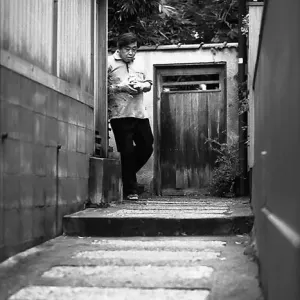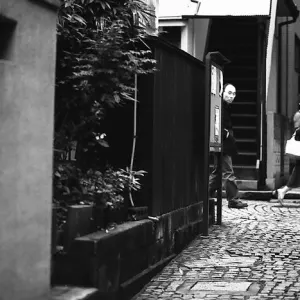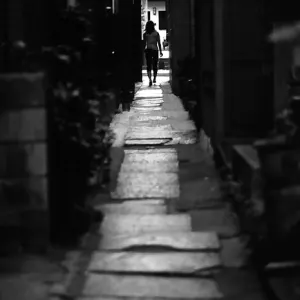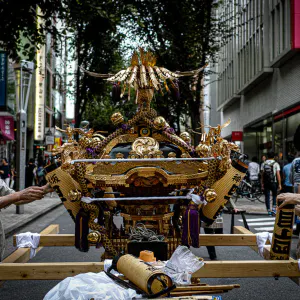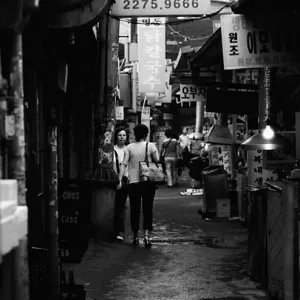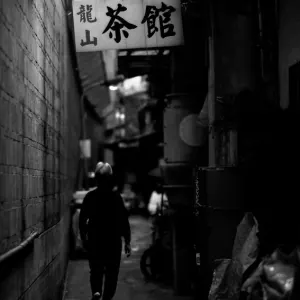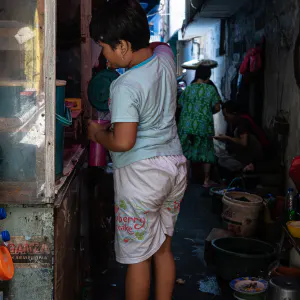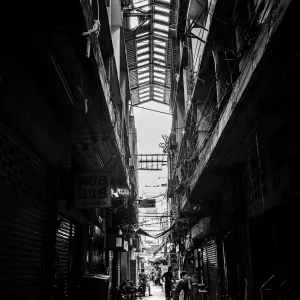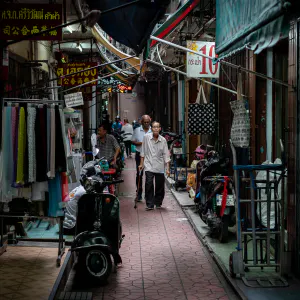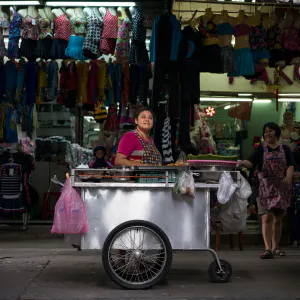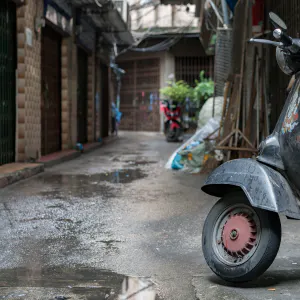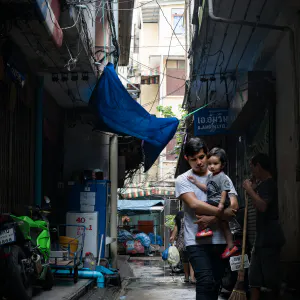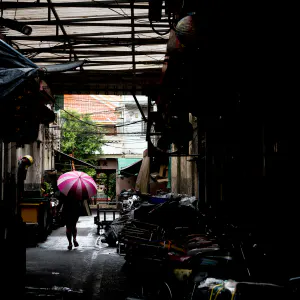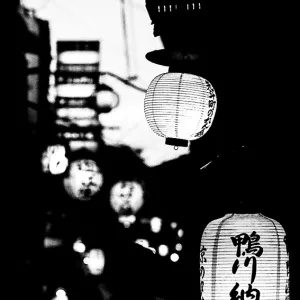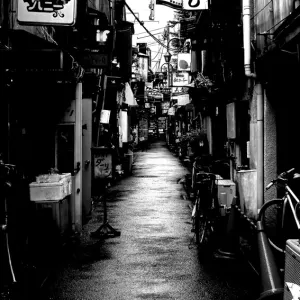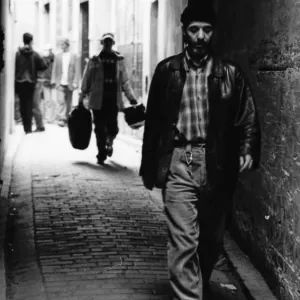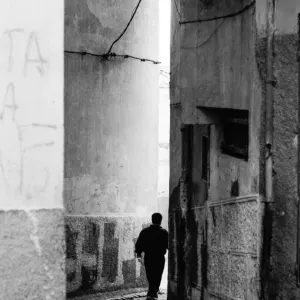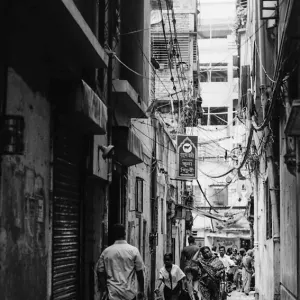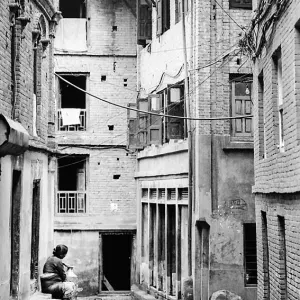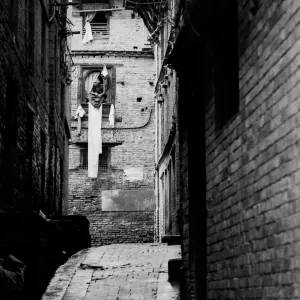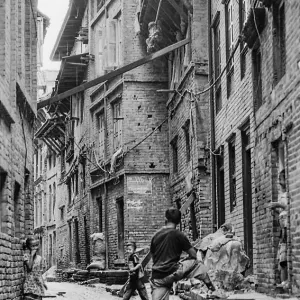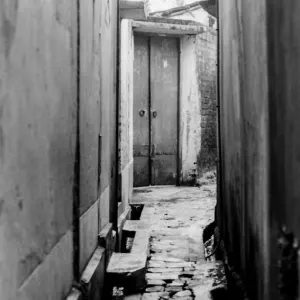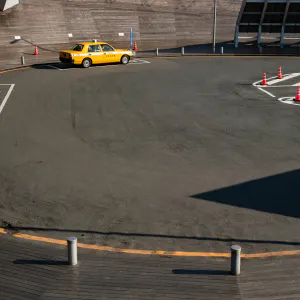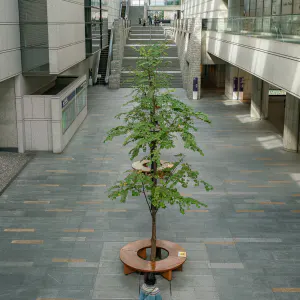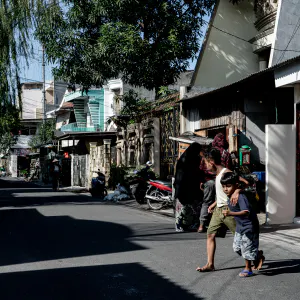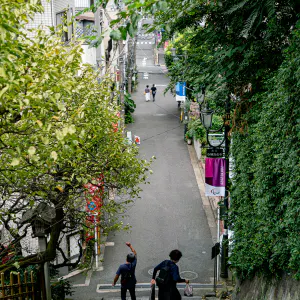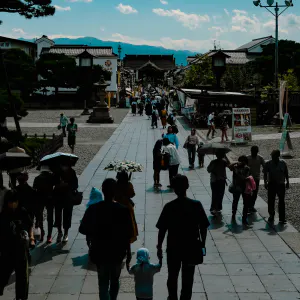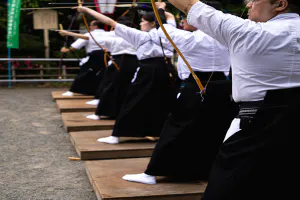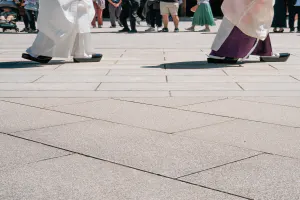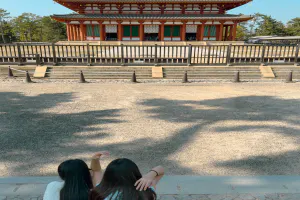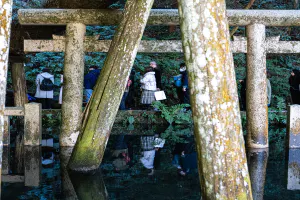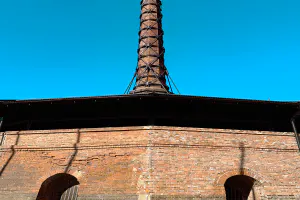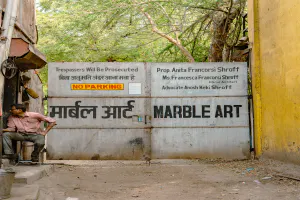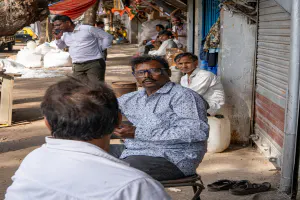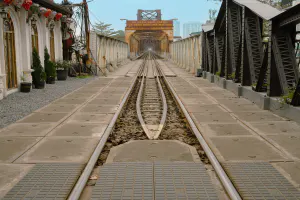The sign was placed in a narrow and dimly lit alley in Kagurazaka
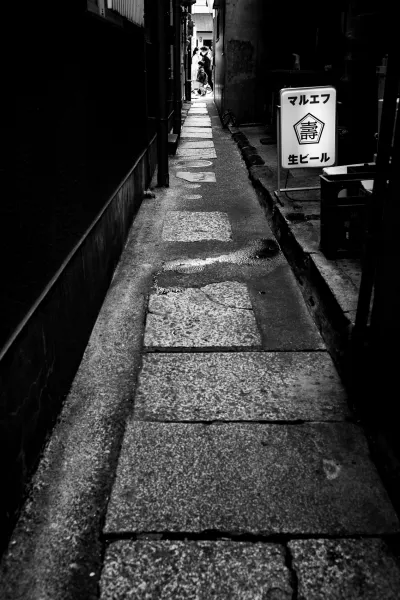
Kagurazaka has a strong image of a former hanamachi (geisha quarter) with austere alleyways. As you walk up Kagurazaka from near Iidabashi Station and veer off to the side, you will find a townscape that matches this image, with its intertwining alleys and restaurants, and the geisha call-office. It is a town for those who love to walk along alleys.
Some of the alleys are so narrow that it is difficult for people to pass each other, let alone cars, and it is clear that the old town layout still remains. However, if one were to ask whether there are any old buildings left in Kagurazaka, where the old town layout still remains, the answer would be no. The reason is that the Kagurazaka area was also built in the 1920s. This is because the Kagurazaka area was also burned to the ground in the Tokyo Air Raid of 1945.
According to a map book reprinted in 1985 titled "Tokyo Metropolitan Area Map: War Damage and Burned Areas," the only areas in Kagurazaka that survived the air raid were the Mitsubishi Bank (now the Bank of Tokyo-Mitsubishi UFJ) and the Tsukudo Elementary School, and the entire area was a burnt plain. The area was rebuilt on top of the burnt ruins with the street layout as it was before the war, and although some narrow alleys remain, no old buildings remain. The main hall of Kagurazaka Bishamonten, the symbol of Kagurazaka, was rebuilt in concrete after the war.
| Jun 2022 IN THE CITY TOKYO | |
| ALLEYWAY DIMNESS KAGURAZAKA SIGNBOARD |
PHOTO DATA
No
12292
Shooting Date
Apr 2022
Posted On
June 10, 2022
Modified On
August 12, 2023
Place
Kagurazaka, Tokyo
Genre
Street Photography
Camera
SONY ALPHA 7R II
Lens
ZEISS LOXIA 2/35
